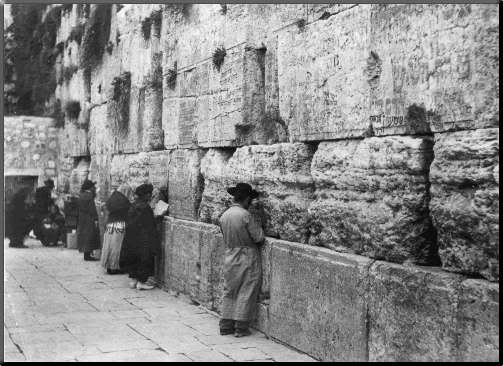
The Main Page
Tuesday, December 27, 2005
Elevator Diffusion
Have you ever noticed how when you get into a crowded elevator there is some kind of metaphysical force that causes an automatic reshuffling of the occupants so that each person maximizes their individual space? Its particularly noticeable as the elevator rises and people exit on their respective floors. Once a person leaves, every person remaining on the elevator will shift their position, to allow for more space between everybody. And if someone doesn't move as expected, you can almost palpate the discomfort that everyone else feels at the ensuing dysequilibrium in personal space. This is regardless of whether or not someone has passed gas or not.
Why is that?
I remember there used to be a show or skit (on HBO?) in the Eighties called Sniglets that came up with words for things that weren't necessarily found in the dictionary. I seem to remember there being a word for this "elevator diffusion," but I can't remember what it is.
Thursday, December 22, 2005
I Love Google
So here I am, a relatively young physician with a growing practice, doing OK, reasonably happy with my work and my life. And there they are, Larry Page and Sergey Brin, two guys who are a few years younger than me and they have this great business going that's all over the 'Net, in the MSM, with blue skies ahead. Page and Brin are the founders of Google, which between its search engine, Froogle, GoogleEarth, GoogleMaps, Picasa and Blogger seems to be one of the pieces of Internet real estate that I use the most, and for free! And they are raking it in.
Not that I'm jealous, well, maybe a little. Sometimes I just wonder about the road not taken - I mean I was in medical school as these guys, and the Jerry Yangs (of Yahoo!) and the Jeff Bezos (of Amazon) were getting their educations and starting up. Was I in the wrong place at the wrong time? I love Yahoo, Amazon and Google and sometimes I think well, gee, I could have done that. At the very least, maybe if I could have invested the $150,000 I owe in student loans for my education in Amazon, Yahoo or Google stock when they IPO'ed I wouldn't need to work at all, and could be thinking about the next Google. Maybe not.
Tuesday, December 20, 2005
Apples, Liberal Jews & Blueberry Muffins
This morning, as I usually do, I picked up a cup of coffee and a pastry before starting my rounds. I like to drink my coffee as I'm going from patient room to patient room and typically finish the pastry by the time I get to the first patient.
As I walk through the halls of hospital munching on my blueberry muffin, I occasionally think about an experience I had when I was interviewing to get into medical school. I was interviewing at a top tier medical school with Christian roots on the East Coast. The interviewer was a very prim and proper middle-aged physician, who started the interview by telling me about the school's rich and Christian roots. It was very interesting, actually.
He quickly surmised that I was Jewish, and he assured me that there were "many Jews" at Top Tier Christian Medical School. He then told me about another Jewish candidate he had interviewed recently. He told me he was not like the other "liberal Jews" and that both of them had been appalled when during the medical school tour they witnessed a physician walking through the halls of the hospital eating an apple.
I have never eaten an apple while walking through the halls of the hospital (only an occasional pastry) and I don't condone either (nor do I think its a particularly big deal, provided its all sanitary). I am a Jew though, and most would say I'm on the liberal side of the political spectrum.
At the time of the interview, his words kind of bounced off me - I felt like I was in a vulnerable position and couldn't really respond to what I have since determined to be antisemitism. I think its kind of an old East Coast upper crust type of antisemitism, that's subtle and not necessarily overt, yet this interviewer felt was appropriate enough to project on to me, provided of course it contained the modifier "liberal". In my book, it would have been equally offensive if he said it was a conservative Jew, a purple Jew or an athletic Jew.
Maybe I should have "reported him" to the administration there and made a stink about it. Maybe it would have forced them to offer me a spot in their incoming class, out of guilt or whatever. (Probably not, and I wouldn't have gone there anyway...). Maybe he would have gotten a slap on the wrist and told he was inappropriate, and maybe he wouldn't be allowed to interview applicants (or at least not the liberal Jewish ones...). I think I carry some guilt or bad feelings over not doing anything about it.
Bottom line, though, is that I carry the experience with me to this day, and I think about it sometimes as I'm eating my morning pastry, walking the halls of the hospital.
Sunday, December 11, 2005
Can Jews Listen to Christmas Music?
Hark! The herald angels sing,
Glory to the newborn King!
I grew up in a pretty secular Jewish household and then have become more religiously observant beginning in college and then more (or less at times) as I've gotten older. When I was in college, one of my Orthodox Jewish friends (of all people!) introduced me to the Frank Sinatra Christmas Album, which I quickly grew to love.
Peace on earth, and mercy mild,
God and sinners reconciled!
One time I was over at his house after a Shabbat in December when his brother-in-law, a pillar of the Orthodox community, heard us listening to the album, and asked us to turn it down (or off) because his children were in the house. We kinda looked at each other, shrugged "OK" and turned it down.
Joyful, all ye nations rise,
Join the triumph of the skies;
I generally have an urge to listen to the CD starting around Thanksgiving and extending through mid-January. Since that time with my friend's brother-in-law, I never really thought too much about it.
With th’angelic host proclaim,
“Christ is born in Bethlehem!”
Whoa! Did he say Christ? He always has. Hmmm. Let's skip a couple of songs ahead; I like that song, what's it called, Adeste Fideles:
O come all ye faithful, Joyful, and triumphant,
O come ye, O come ye To Bethlehem!
Come and behold Him Born the King of angels!
O come, let us adore Him, O come, let us adore Him,
Christ the Lord!
Vvvvvvvvvehhhhwwwupppp (the sound of a scratching record) - Christ the Lord? OMG! Can I listen to this stuff? It's really fun to listen to, and I hear it in all the stores. Let's see who wrote some of these songs.
Song#2 - The Christmas Song, by Mel Torme. Well, he's Jewish.
Song#5 - The Christmas Waltz, by Sammy Cahn and Jules Styne - Jewish too.
Song#13 - White Christmas, by Irving Berlin. Jew!
So there are other Jews who liked this stuff enough to write songs about it. Still, there's the whole Christ thing, which means Messiah in Latin, and of course we Jews don't believe that Jesus was the Messiah. We are so assaulted by the "Christmas Spirit" and poor little Hannukah has been elevated to this status where it must compete with that spirit. To quote comedian Adam Sandler,who seems to share some of my confusion over this issue "Okay...This is a song that uhh..There’s a lot of christmas songs out there and uhh..Not too many chanukah songs. So uhh.."
I have to admit I listened to the whole Sinatra Christmas Album the other day, sang along and enjoyed it by myself, kinda like a guilty pleasure for lack of a better term. All of a sudden my wife's voice from the other room: "Honey, you're going to confuse our son!" Our son is still too young to understand any of this religious stuff anyway, but I guess I'm going to have to start thinking about these issues more in the future. We intend to instill in him a love of all music, and certainly don't want to shelter him from the society around us. Maybe we'll just have to explain it to him and how we're Jewish and so on and so forth. In our home, rather than competing with Christmas , perhaps we can show him our love for Jewish music all year round, and in December as well. In the meantime, am I a bad Jew for liking this stuff?
Oh by gosh by golly, it's time for mistletoe and holly...
Thursday, December 08, 2005
John Lennon: October 9, 1940- December 8, 1980
It was twenty-five years ago today that John Lennon was assassinated in front of his apartment building in New York City. Besides his musical work with The Beatles, solo and with his wife Yoko Ono, Lennon is also known for his political activitism and tireless campaign for world peace. Regardless of what one might think of his music or his politics, most people would agree that the world lost some of its innocence the day he was murdered. We can only imagine what Lennon would have done or thought about things like the AIDS epidemic, the environment, Islamic terrorism, the Gulf Wars, etc. We may not have always agreed with what he would say, but I'm sure his voice would have been heard loud and clear, and he is missed.

Imagine all the people, living for today...
Imagine all the people, living life in peace...
Imagine all the people, sharing all the world...
You may say I'm a dreamer, but I'm not the only one,
I hope some day you'll join us,
And the world will live as one.
Politics aside, it just occurred to me after re-reading this post that a great way to remember John Lennon would be for everyone who reads this post to leave their favorite Lennon/Beatles song in the comments section. And I know EVERYONE has a favorite Beatles song...
Monday, December 05, 2005
The Whims of Memory
Doctor Bean and I share a patient who recently was admitted to the hospital because she passed out at home. She is a lovely nonagenerian who has heart disease that would require open heart surgery to fix, and she is too frail to go through with it. She has some memory deficits too, but usually keeps it together pretty well. Her first day in the hospital, she insisted she was at Lenox Hill Hospital (a hospital in Manhattan, New York) when in fact she was hospitalized at one of the local hospitals here in Southern California. Several days after being hospitalized I asked her about it and she chuckled, telling me that it was strange she would think that and that she knew she was at the hospital in California. I asked her if she remembered my name, and she couldn't. I then asked her where Lenox Hill Hospital was and she replied, "oh doctor that's on Lexington and 78th." I then asked her if she knew where Mount Sinai Hospital was and she said, "everyone knows that's on 5th Avenue and 102nd Street." She has lived in Southern California for decades.
Another one of my patients, a lovely octogenerian woman came to see me today because of a skin rash she developed possibly from a new medication I prescribed. Blanche (not her real name) is a feisty one who's losing her memory. She has blocked arteries in her heart, but we never did anything about it because she would have chest pain every once in a while, but would never remember it after the fact - so it didn't bother her too much. She comes to see me with either her daughter and her caregiver and I make adjustments to her medications and she leaves. I had told her once that my wife and I were expecting a baby and when he arrived, Blanche immediately dubbed him "The Chochem" (smart one in Yiddish). Every time she sees me since he was born four months ago the first thing she says to me with a big, partially toothless smile is "How is the Chochem?" Do you ever have chest pain, Blanche? "No doctor, I don't think so."
Serge Zweibel was one of my first patients when I became a full-fledged cardiologist. He was almost one hundred years old. In the 1920's he had played on the Czech national soccer time and was always an accomplished athlete. He survived the Holocaust and moved to America after the war. He remained very active for years until he was crippled by severe heart disease and arthritis. His mind always seemed crystal-clear. In his last few months of life he was repeatedly hospitalized with terrible heart failure. As he would gasp for air the first few hospital admissions, he would complain about his back pain and yell at the nurses caring for him. Once the medications cleared his lungs, he would invite me to sit with him, and he would tell me about his days as a star soccer player. He showed me pictures of himself in his twenties flying through the air kicking the ball spectacularly. We never talked about his experiences during the Holocaust. He would get a little better and then go home, only to return to the hospital a few days later. With time, he would ask me why God was doing this to him. He said he could not understand why God would let his body fall apart, especially his, the star athlete, and yet leave his mind so crystal clear that he would have to know everything that was happening to him. He would say that he wished he could be demented, and then at the very end, he would ask me to leave him to die and not treat him. I would cajole him to let me clear his lungs again, and he would let me, until the last time.
Elie Wiesel's book The Forgotten deals with the theme of memory and the Holocaust. The main character Malkiel Rosenbaum is watching his elderly father, Elhanan, a Holocaust survivor slowly lose his memory. Elhanan is very troubled by his memory loss. Like many Survivors, since his survival his raison d'etre has been to bear witness. As he feels his memory slipping away he feels extreme anguish. Malkiel must travel to Romania to vist his father's old village and revisit the places and events that comprise his father's memory. In the end Malkiel decides: "I will bear witness in his place; I will speak for him. It is the son's duty not to let his father die." Memory becomes existence, and existence memory.
In my day to day work I see many elderly patients, occasionally with cognitive impairment and varying memory deficits. On the one hand many of them seem quaint and "forgetful." It is easy to see them how they are now, and for me to forget that each of them carries a lifetime of memories. What is amazing to me is what actually sticks. What is it about a memory that makes it so significant that a person carries it with them. Why do some people remember a street corner from many years ago, can remember a newborn "Chochem" from four months ago but can't remember a noxious sensation or a painful time in their life. One can talk of "selective memory," and perhaps that each person chooses what to remember. There are some things that just can't be explained, and instead it might just be enough to observe them and then take some free time to think about them a little. Maybe that's how memories are formed - we remember what we think about, and we think about what's important to us. And different things are important to different people. I guess today, thinking about memory just seemed important to me.






